An interactive performance shows possible future for Denver if the climate crisis isn't addressed

DENVER — Along the fringes of a pallet-strewn parking lot in Aurora, a nimble, self-described climate refugee scuttles, glancing back at the giant graffitied bus pulling onto the street. “THE END,” reads the side of the bus in giant black spray-painted letters. The words are strike-through, canceling themselves out.
The bus — and what happens once a person boards it — is both an invitation and an omen.
The invitation has been extended by expeditionary, performance-based Control Group Productions. The omen is the troupe’s theatrical enactment of a potential future of Denver’s natural resource and social scarcity if current climate issues are not addressed. Passengers on the bus are transported both physically and metaphorically over a three-hour ride, consciously and expertly woven into an immersive experience that relies on their participation.
As the sun beats down, the refugee finds respite in a sliver of shade. They are The Leader, they explain, of the cohort trying to make their way to The Refuge, a promised land of safety — a shred of hope in a forgotten, stark, abandoned city scape.
“This is the only guaranteed and safe transport from here to The Refuge," The Leader, played by Gwendolyn Gussman, explains, pointing to the bus. “The Refuge is the last safe place in Colorado for us to go. I mean, with everything going down…” The Leader trails off. “Look. It’s not safe here anymore.”
Before The Leader can finish explaining, The Mudphrophet appears, delivering a tirade of end-days rants and climate forecasts — a monologue interrupted by The Leader, who urgently ushers the group onto the bus as it prepares for departure. The Mudphrophet chases behind.
The Mudphrophet character is played by Control Group Artistic Director Patrick Mueller, who has been co-creating interactive exhibits for almost 15 years.
THE END was originally envisioned as “taking audiences on a bus tour of the apocalypse it felt like we were heading for at the beginning of 2020,” Mueller explained, “a society driving itself off the cliff, with broken politics and social fabric as the primary vehicle.”
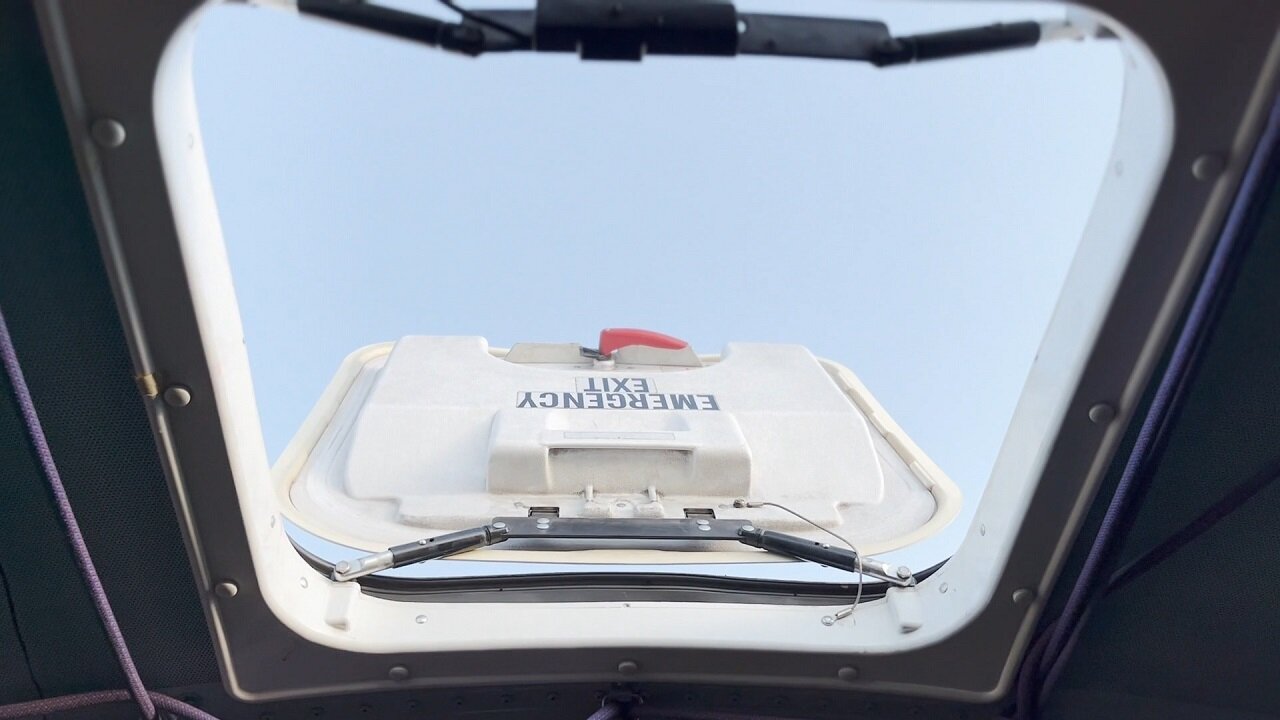
For years, the Environmental Protection Agency has warned Coloradans that climate change means heat waves, less water and decreased agricultural yields with threats including wildfires and extreme weather.
Centering climate and the environment as core concerns, Mueller said the original script was “sociopolitical, and also more cavalier and wilder – there were drones, and a cyborg character, and punk rock band.”
The original show was postponed by the pandemic — then morphed to reflect its own postponement. After “a real quasi-apocalypse happened, the climate crisis forced its way much more violently into our field of view,” Mueller said. “We learned a lot from the pandemic. We recognized a responsibility to meet people in that trauma. And we watched the climate move many of our ideas from science fiction to just plain science.”
The resulting show is “more serious and contemplative” than its first draft, Mueller said. His character’s fact-spewing and sounding the alarm on reality are rooted in five years of dedicated research on climate change and, specifically, its impacts on Denver.
“My character, The Mudprophet, is fixated on the crisis and getting people's attention about it,” Muller said. “He's consumed with the problem, doesn't see answers, and slips toward authoritarianism as he feels the cliff arriving.” As his character chases participants onto the bus in a flurry of megaphone shouting and arguments, he is then left behind — a bit too real to embark to the Promised Land.
Instead of being guided as en route tourists, passengers of the bus visit a series of locations affected by escalating climate conditions. A glimpse of what first world populations may consider a gnarly future is revealed: supply routes have dissolved, and no one has had coffee in years. Obtaining necessities requires bartering and bargaining. Each passenger is given a role — Foragers, for example, weigh potatoes to learn if there are enough to trade.
The Leader — played in this iteration by Gwendolyn Gussman — continues to implore passengers to believe in The Refuge, the far-off sanctuary for climate refugees that becomes more closely related to a mirage as the tour goes on. As the team of actors place ticket holders face-to-face with impending climate realities, opposing narratives, and conflicting goals, the audience is forced to decide for themselves: Does a place like The Refuge even exist? Or are we just kidding ourselves?
At first, the sun-filled bus feels inspiring; participants, encouraged by The Leader’s assurances, went about menial tasks to contribute to the group and organized sacks of supplies. There was celebration, hype, dancing — even a Conga line to accompany a robust soundtrack of end-of-the-world tunes.
But as it turns out, searching for safety in post-apocalyptic Denver is no easy feat.
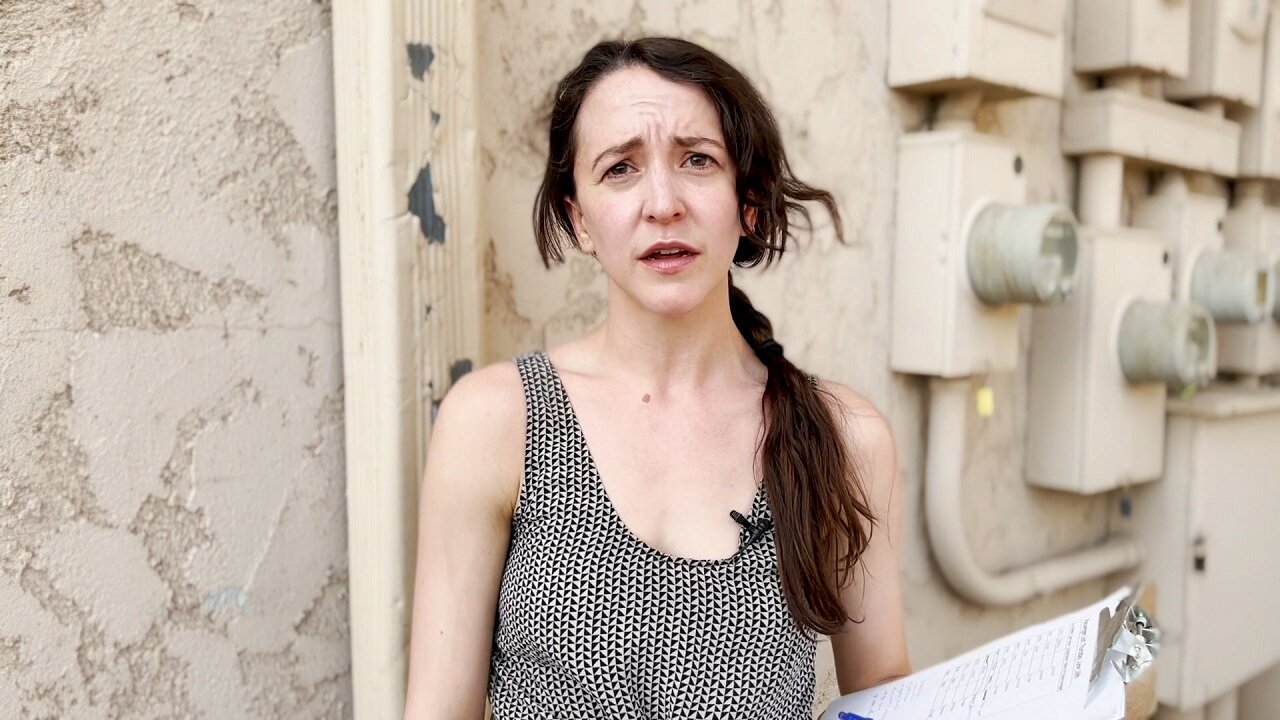
The three-hour journey unfolds rapidly into a choose-your-own-adventure. Like Fight Club, you determine your own level of involvement: audience members took a pre-survey gauging their comfortability with direct interaction, and were encouraged to bring their own Go Bag with gear to help support them through the climate apocalypse.
At each stop, a halting force pushes back on the faulty narrative of safety, beckoning to go ahead and cease life as you knew it. Scarcity and fear reflect in the eyes of the cast along the way as each person scans you for signs of danger. Unhinged characters pop from nowhere; trust is hard to come by. A slow realization sets in: This is just how life is now.
Actors, raw and untethered, express what it means to live without the conveniences of water, land, or even kindred humans. From hope to cynicism, insanity, and addiction, the troupe whittles urgency to a thin point before abandoning The Refuge altogether and attempting to bridge the gap themselves.
Each audience member’s experience is determined by in-the-moment decisions and explorations. At a Safe House stop, a hollowed-out concrete industrial space where some refugees have set up camp is the perfect location for each character to embark on their own tailspin. If you follow one actor, you might stumble upon a cache of liquor and observe their coping with reality by becoming drunk and hostile; while another character hangs in the shadows, imploring guests for tips on how to catch rabbits and wildlife. In another room, a refugee tries to comfort guests with nostalgic remnants of the past — like a singular still-living tree.
Sensory and emotional experiences gain traction as these interactions heighten, orbiting around a forced experience of limited resources. How does consumption of water change when you simply do not have access? It’s a question people around the world have faced for time immemorial — and not one Colorado’s city dwellers are accustomed to asking. The evening culminates in the inebriated passenger furiously breaking the water filtration system, resulting in lament, fear and the fleeting sense of having finally lost everything.
Today, “when I look at Denver, I see an invisible desert — an insidious devastation of the environment, and land bending under the weight of the current population and its practices,” said Mueller. “We've done a great job of hiding our waste in areas few people ever go, like Globeville, Elyria-Swansea, and Commerce City, and refuting the semi-arid truth of this land.”
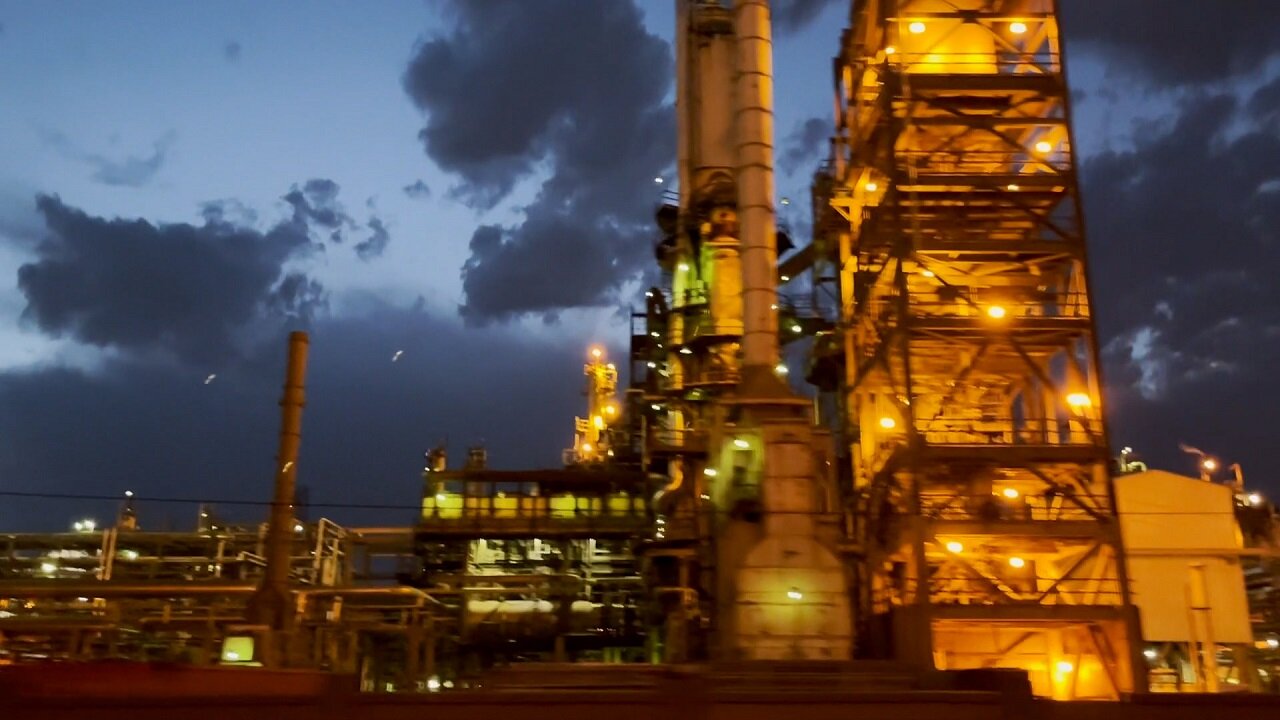
THE END brings passengers through these areas. Skating the edge Commerce City, the bus tour highlights the monstrous Suncor plants, providing ample dark mood for the unease at hand and invoking the natural eeriness of the larger-than-life energy facilities.
Spending time in areas of Denver she had not frequented, Gussman said “this show has really stirred some deep feeling and action in me in wanting to expand my vision of what Denver and what Colorado are.”
Gussman, who owns immersive dance theatre company HOLDTIGHT, signed onto THE END as a friend and supporter. “I’ve loved watching what Control Group has done for the community and the greater Colorado arts scene at large,” Gussman said.
To craft the narrative of her character arc, Gussman researched climate change, learning what’s likely, unlikely, and unavoidable. “This piece is fiction, but it’s rooted in real, significant issues that all of us are facing, specifically in Colorado,” Gussman said.
Preparing to perform the show, she said, “has been wild. I’ve learned a lot. But a big portion of it is just to acknowledge that nature is everywhere, and we are one with nature.”
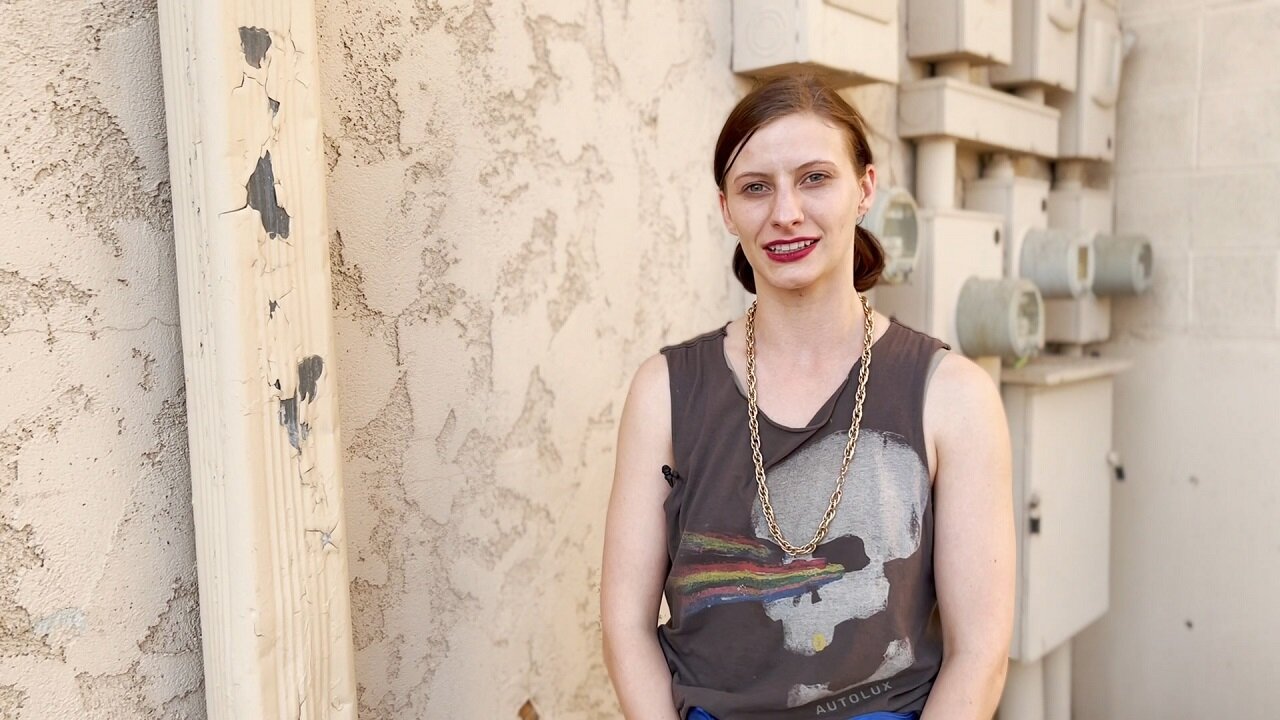
“This show feels very real. There are moments when you kind of forget it’s a show,” said Caroline Sharkey, company Artist Services Director and performer. “When we think about climate change, we often think about it happening anywhere else but our own reality. Meanwhile, a lot of Denver is already really polluted, and already experiencing climate change,” Sharkey said. “A lot our show takes place in one of the most polluted zip codes in all of America. It’s something I did not know. The process of working in a place that is already experiencing these conflicts has really made me more cognizant and mindful of my own actions.”
Sharkey said her character — the inebriated filtration-destroyer — specifically deals with nihilism, “and tapping into the feeling of abandonment. My character sort of gives up and has a kind of deep hatred for all the things that have happened, and the fact that nobody did anything.”
Personal and performance processes overplayed and became one, the actors noted, as they each also realized their own reactions to, and role in, climate change.
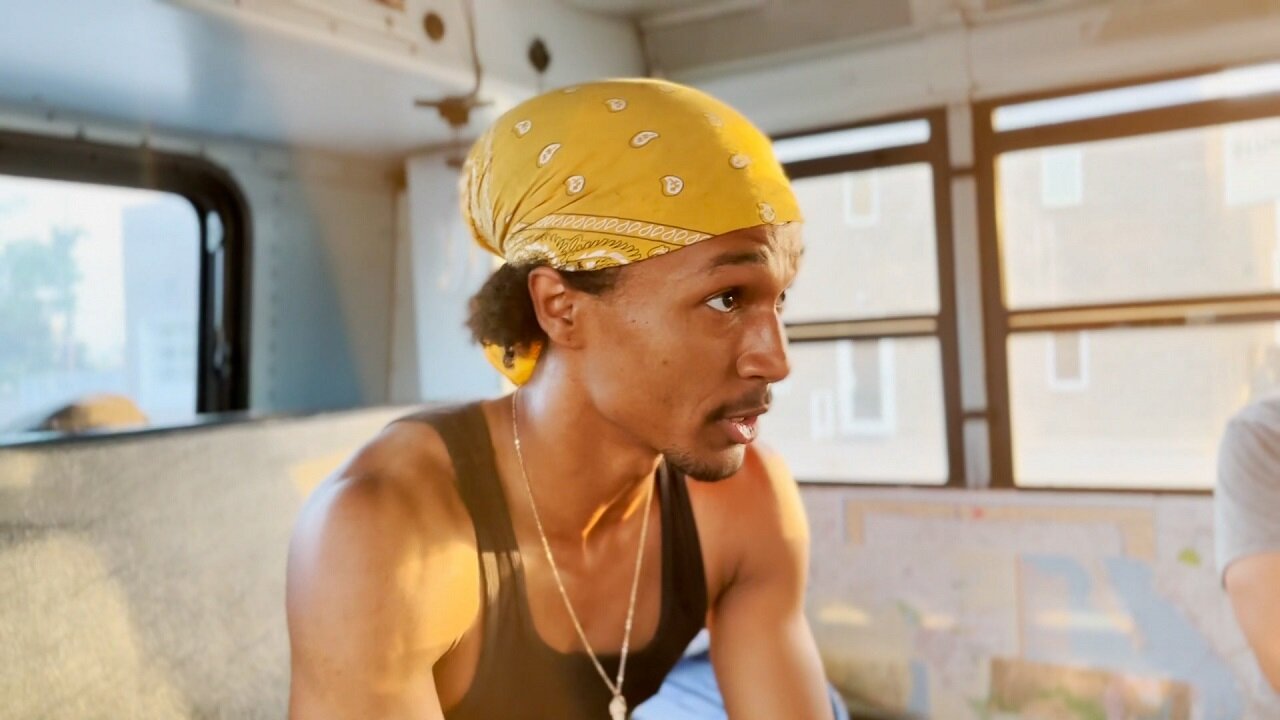
“I think it's important to say: THE END is a cautionary tale,” said Mueller. “We chose to address the climate crisis in this way in the hopes that people would recognize more fully and deeply how important it is that we avert this prospective future. We believe that the available responses and actions are mostly obvious… it just requires that people are galvanized to act.”
The program spurs direct, individual actions: replacing lawns with xeriscape, planting native species for pollinators, and growing food.
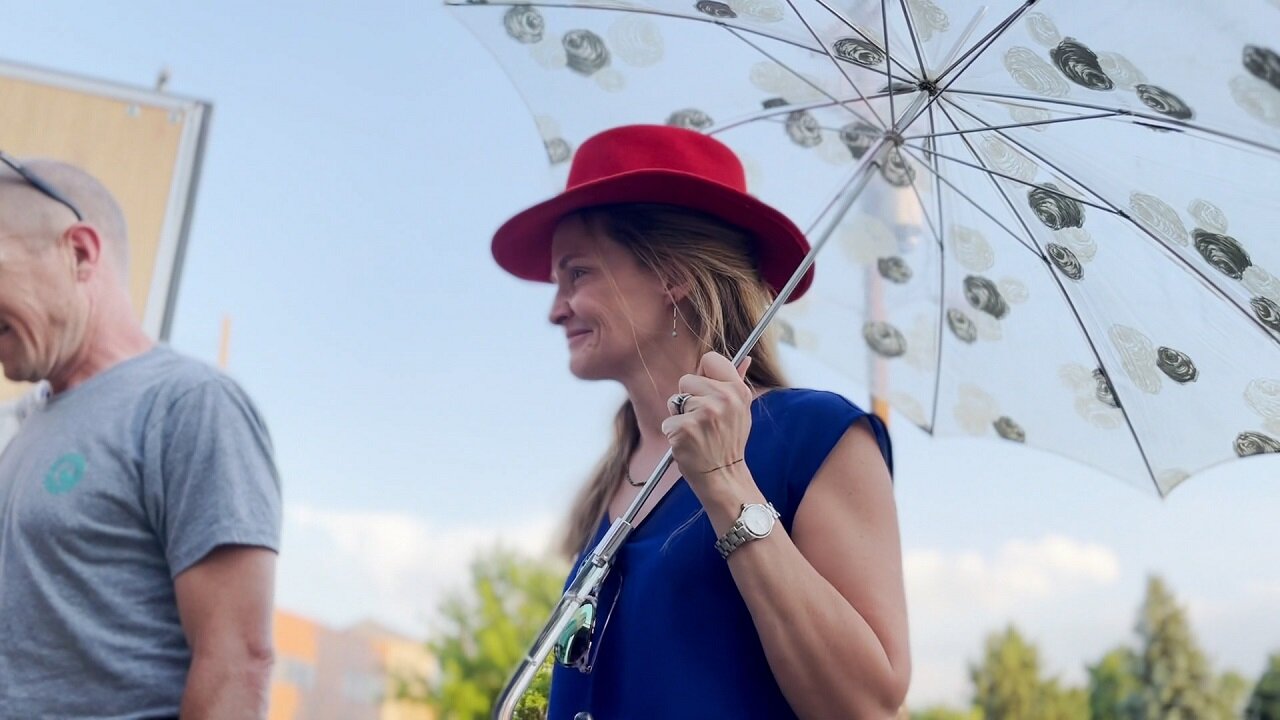
“I’m familiar with [Mueller’s] work and have been extremely impressed before,” said Angie Miller, a ticket holder who was assigned the role of Forager and asked to help collect goods to trade for supplies along the way. “The issue of climate change is particularly important right now, and I feel there are never too many ways we can put it out there,” Miller said. “The drive through the Commerce City factory area was an incredibly haunting visual of what industry is contributing to earth’s problems."
Miller’s takeaway was that “There is no magic bus or single solution that will save us from our mistakes that have led to climate change,” she said. “Action to slow the depletion of our earth’s resources must come from everyone.”
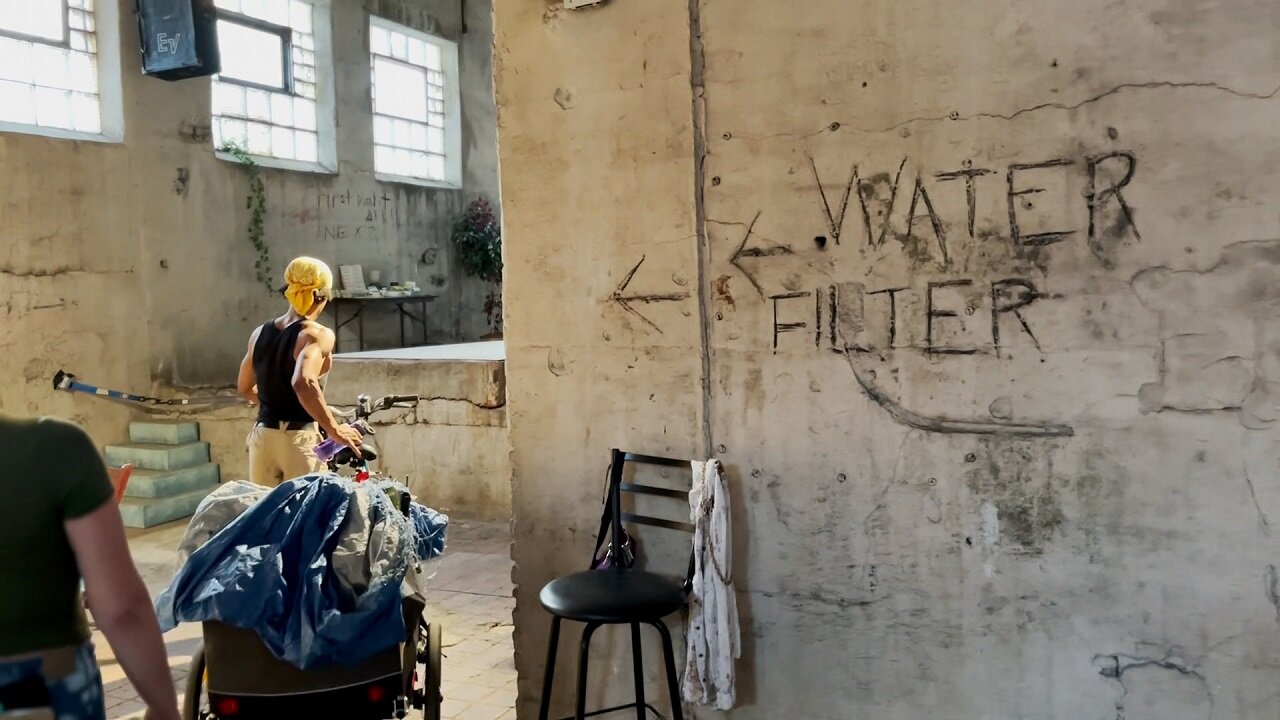
“In terms of the direct effects of climate change, we need to plan for far less water,” Mueller said. “We also need to plan for the intersectional effects of the climate crisis – refugee influxes, supply chain disruptions, macro-economic downturns, and armed conflicts. Maybe more than anything, we need to figure out how to heal the divide within our society,” Mueller said, “where half our population subscribes to ‘alternate facts’ and rejects the facts and demands of climate change.”
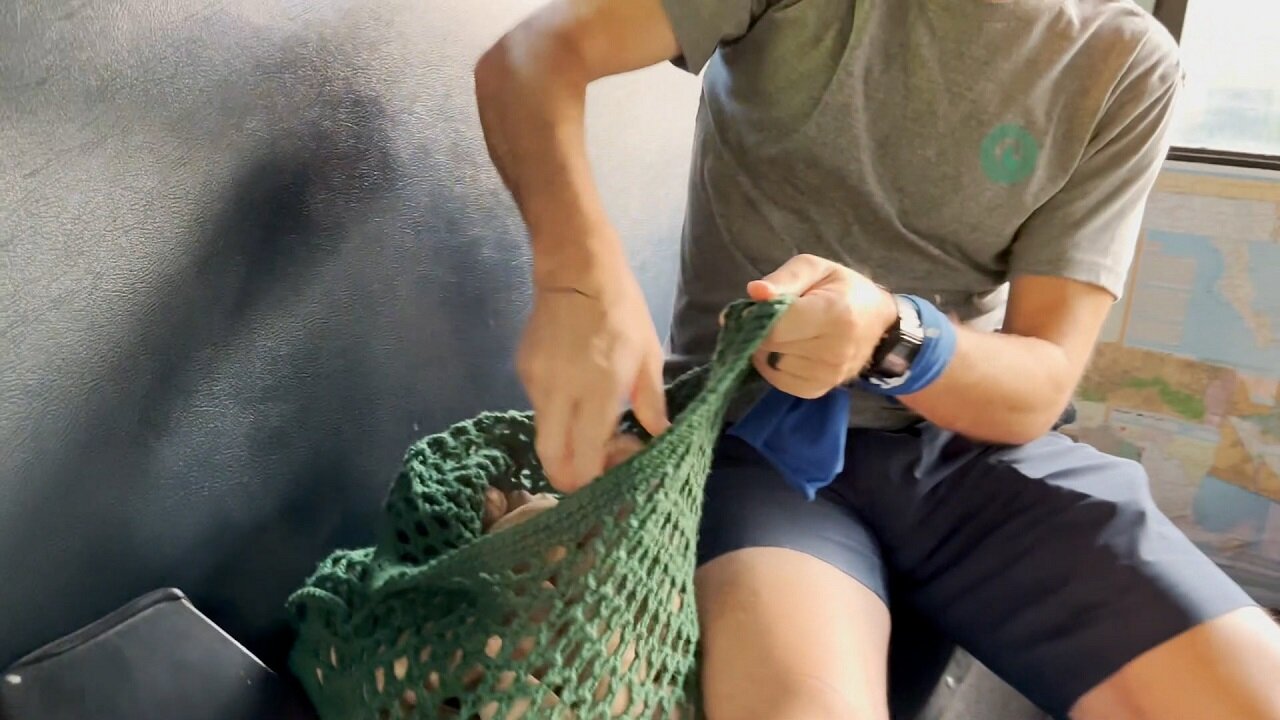
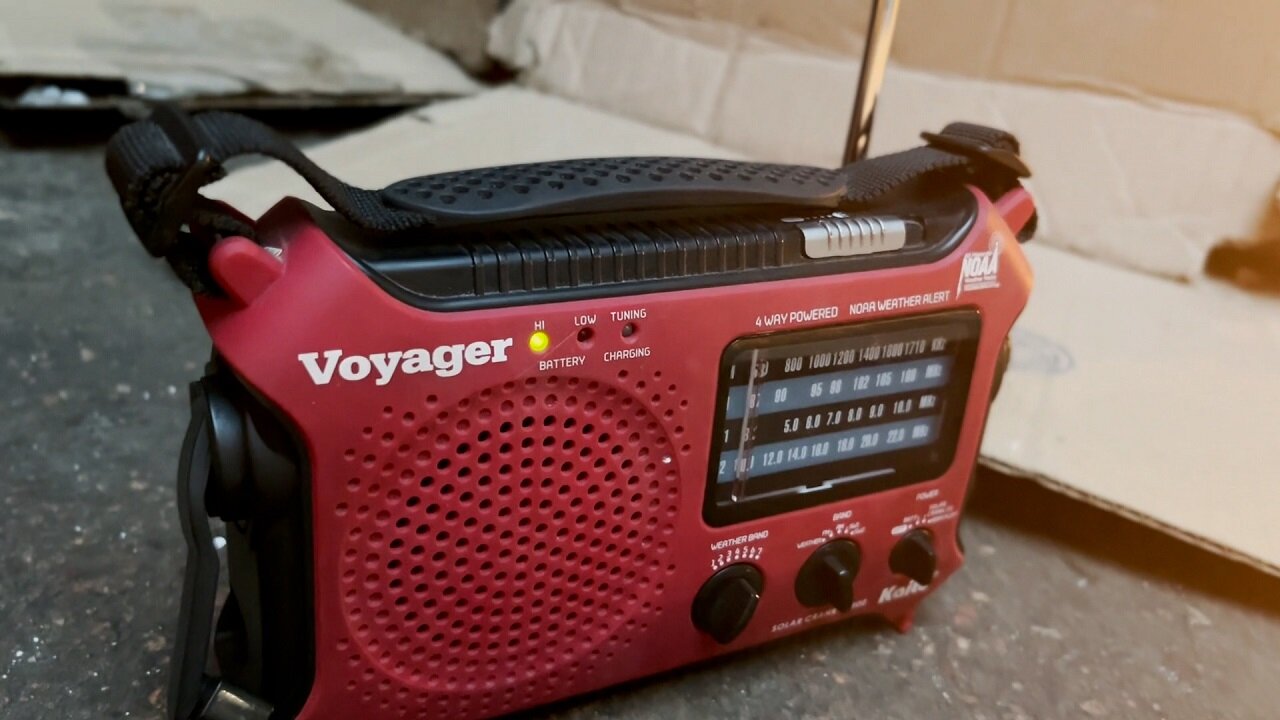
As our physical environment evolves to reflect depleting resources, Mueller intoned a calling spiritual balance. “I also see a society that realizes on many levels how deeply out of sync with its environment it is, with many people yearning for and working toward a more reciprocal and harmonious relationship,” Mueller said.
“Spend time in nature,” Mueller advised, “where you can experience wild animals, tree shade, and water straight from mountain snowpack. It reminds you why it's worth doing the work to reduce your carbon footprint.”
The program runs starting from various locations in Denver, Lakewood and Westminster through July 31. The tour Rocky Mountain PBS joined started from Factory Five Five. More information is here.
Kate Perdoni is a multimedia journalist with Rocky Mountain PBS and can be reached at kateperdoni@rmpbs.org. View a map of their recent reporting here.